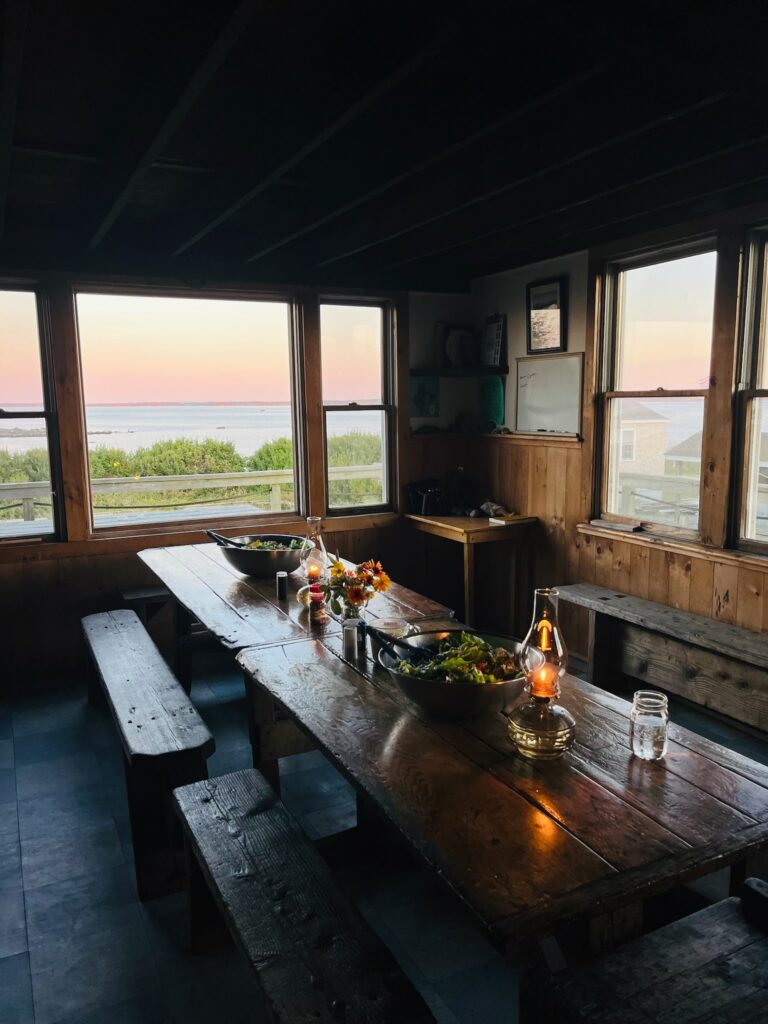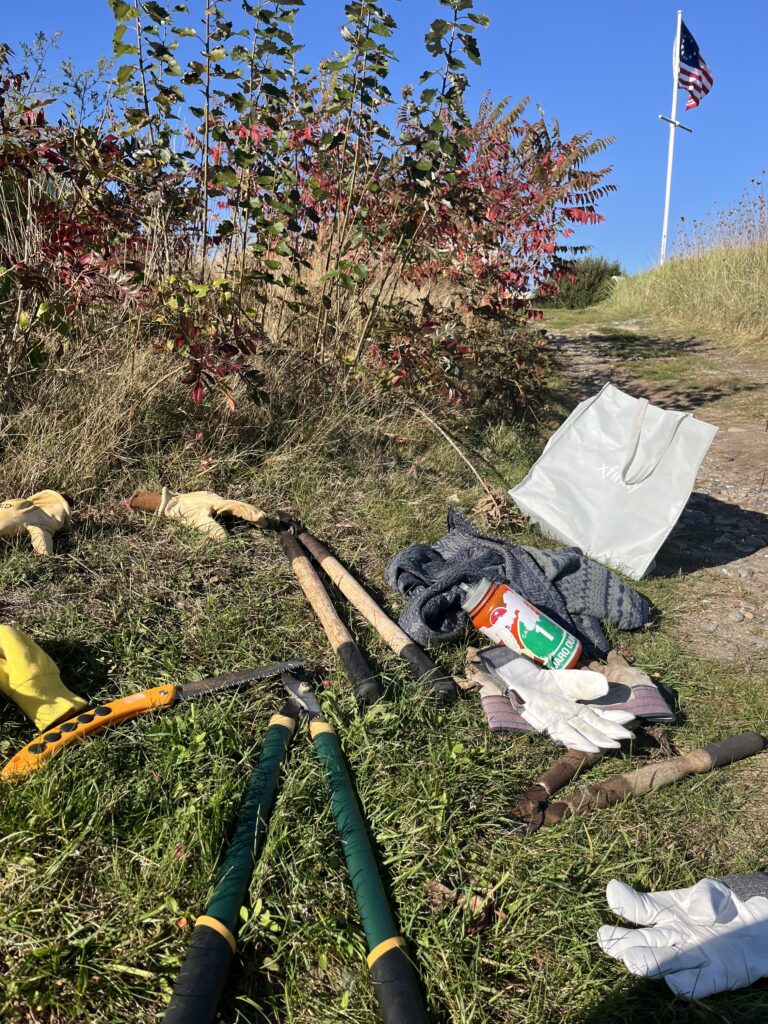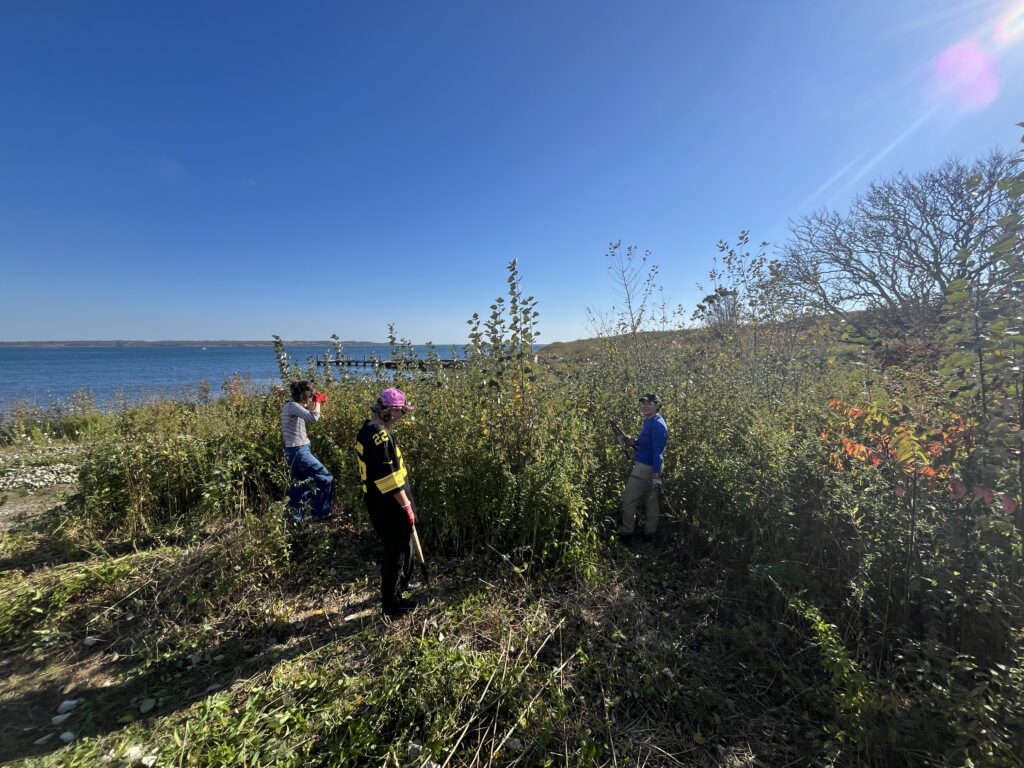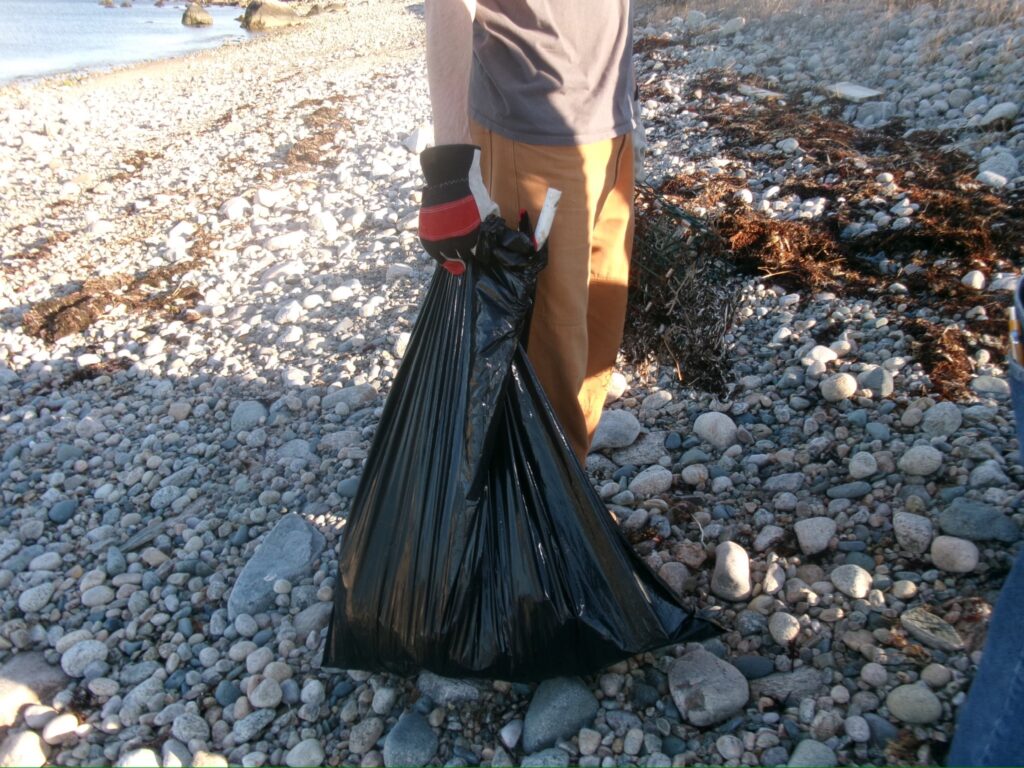Gardening, Coastal Cleanup, Poplar Tree Pruning & Kitchen Labor
What did it mean to work on Penikese Island?
Labor on Peniskee Island is oriented toward practicing the mission of the institute, being living on the land well. Coastal Cleanup, Pruning Poplar Trees, and Gardening made up the labor done on the island. All of the labor puts energy toward maintaining the island itself or the habitats and health of the life on the island. This was an opportunity for reflection upon our role as stewards of the land.
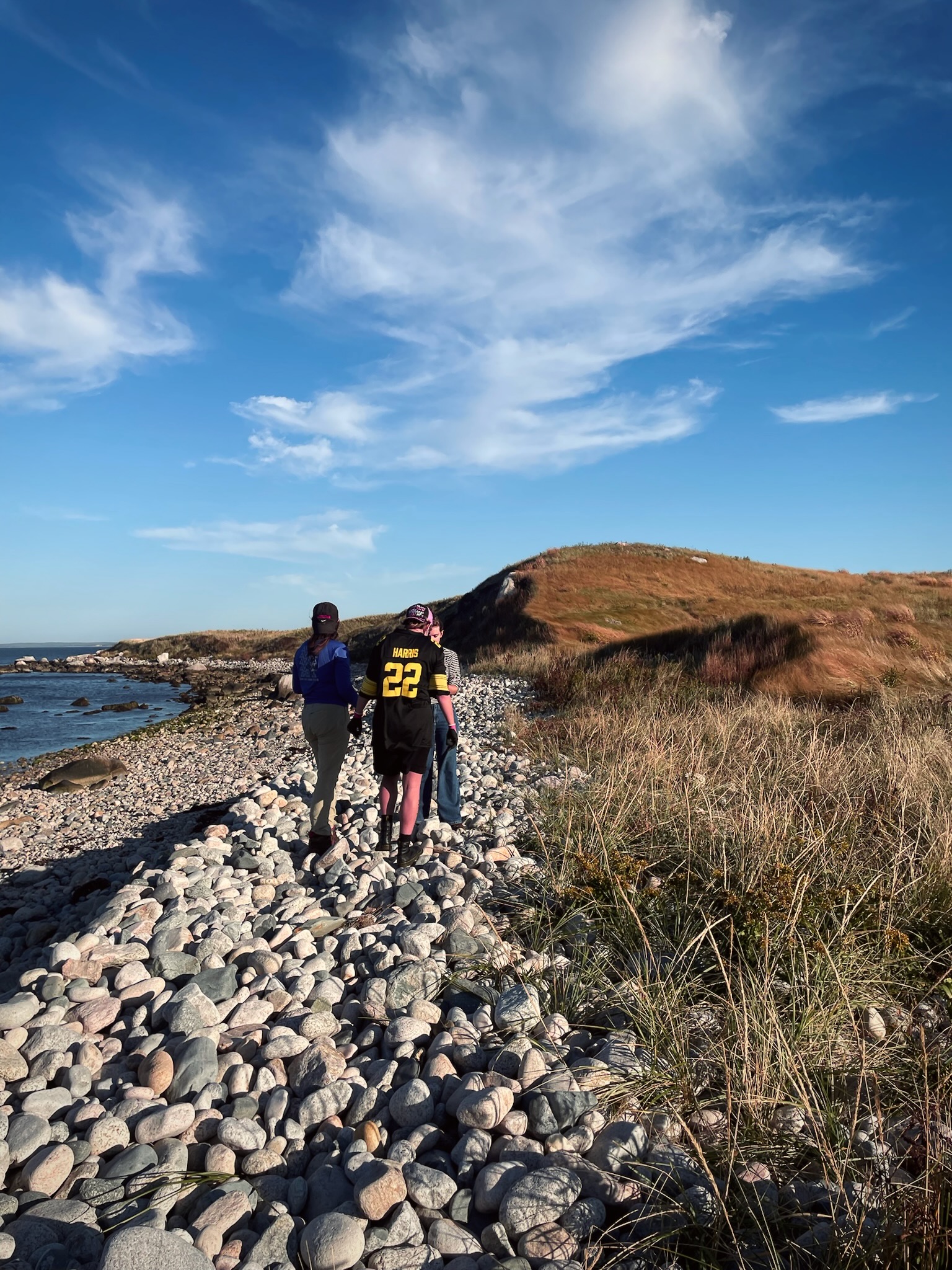
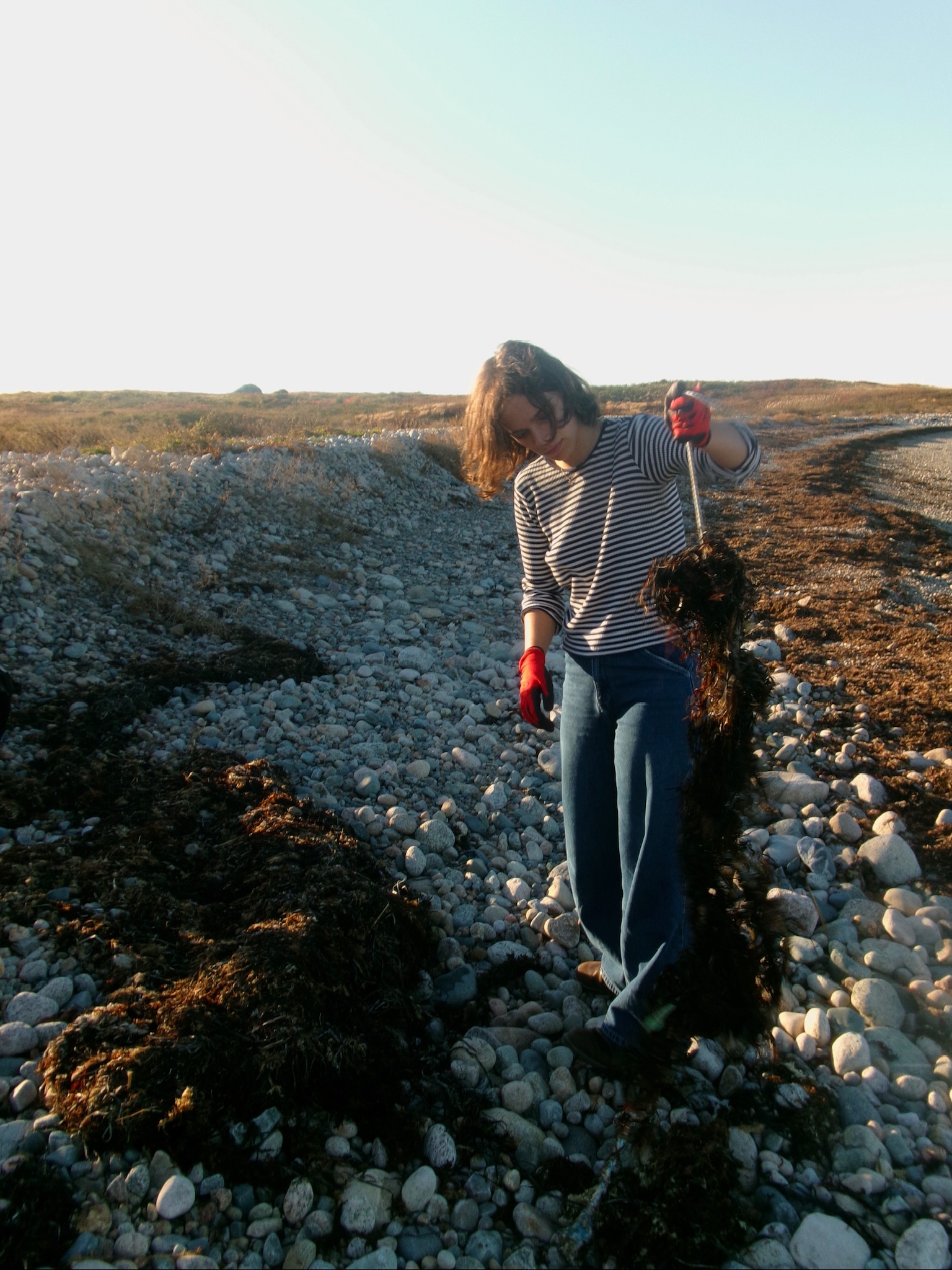
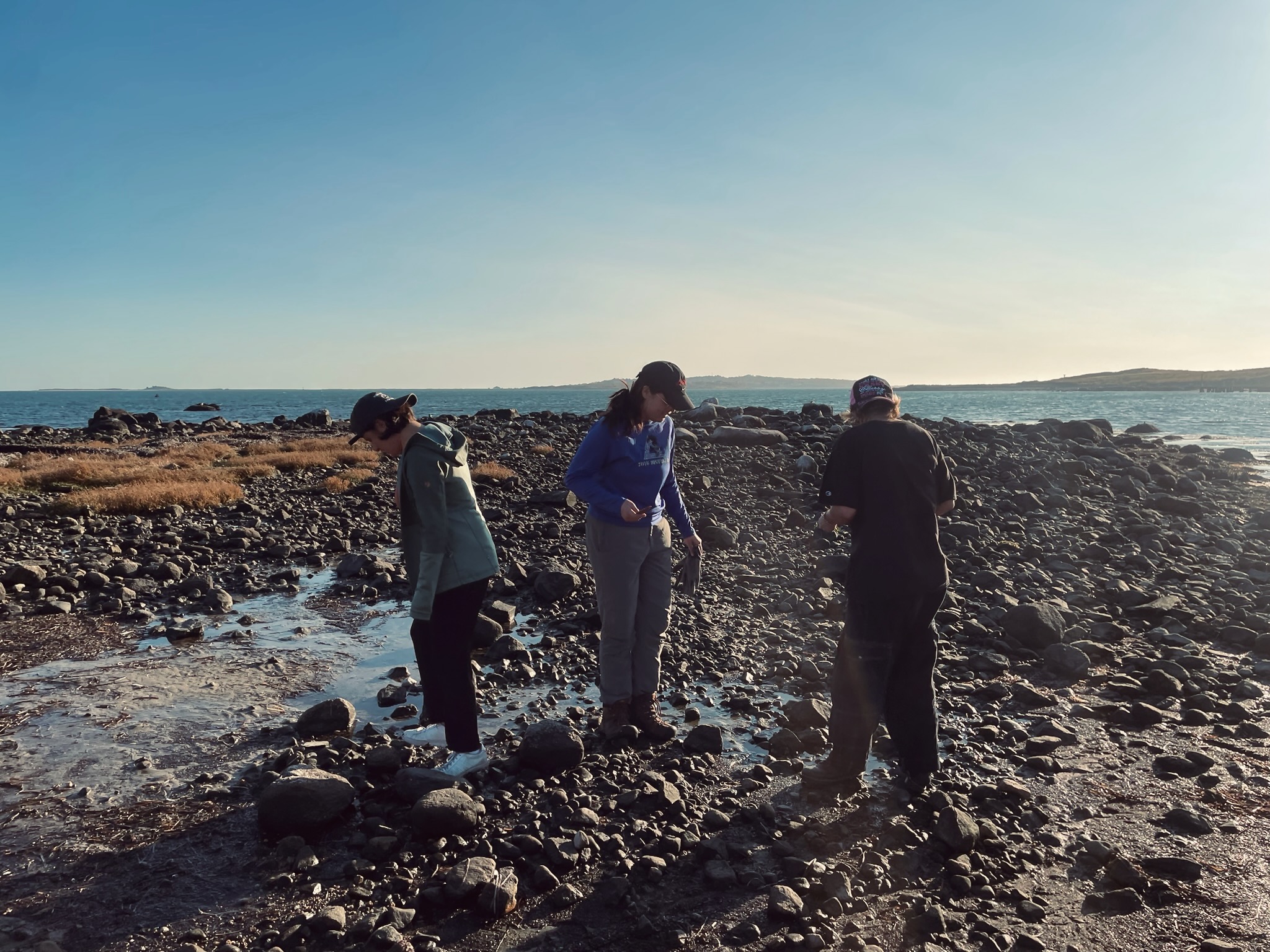
Pruning Poplar Trees
One of the responsibilities of Penikese is to ensure that it is prepared for bird nesting. This is usually done through a controlled burn of the island, which clears the area for the birds to nest in the spring.
However, this year the burn is not scheduled to take place, which means it is up to the caretakers of the island to clear the space. As a part of our labor, we were tasked to help with the removal of poplar trees near the coast in order to create space for the spring bird nesting.
During this labor, many conversations took place regarding the nature of the task, and if it was something that we (as guests of the island) were responsible for. On one hand, the birds needed the proper environment to nest, but preparing this environment meant removing plant-life that was already thriving in the area. In connection to one of the Gull Institute’s core ideas, of living off land meaningfully, was our labor contributing to the formation of a connection between the land and us as inhabitants? Through this task we demonstrated care for the land, in exchange for the place it provided us to live.
Gardening
Part of our labor while on Penikese Island was tending to the gardening space in front of the main building. Though the garden had previously been used to grow food, it has become overgrown in recent years without a year-round caretaker on the island to look after it. Part of our job was to clear the space, removing weeds and dried perennial plants to open up the possibility of using the garden again, whether for growing food or other flowers and plants.
While gardening, we collected some of the remaining wildflowers for bouquets for the dinner table, learned to recognize the leaves of old, previously planted carrots and the smell of sage bushes and oregano, and harvested sunchokes that we would go on to eat later at dinner. We also grappled with questions of how to know what to clear from the garden, what a weed is, and how our work was helping build our connection to the space. Through our collaboration and conversation, we slowly cleared the garden, made room for future growth, and found ourselves firmly rooted in place.
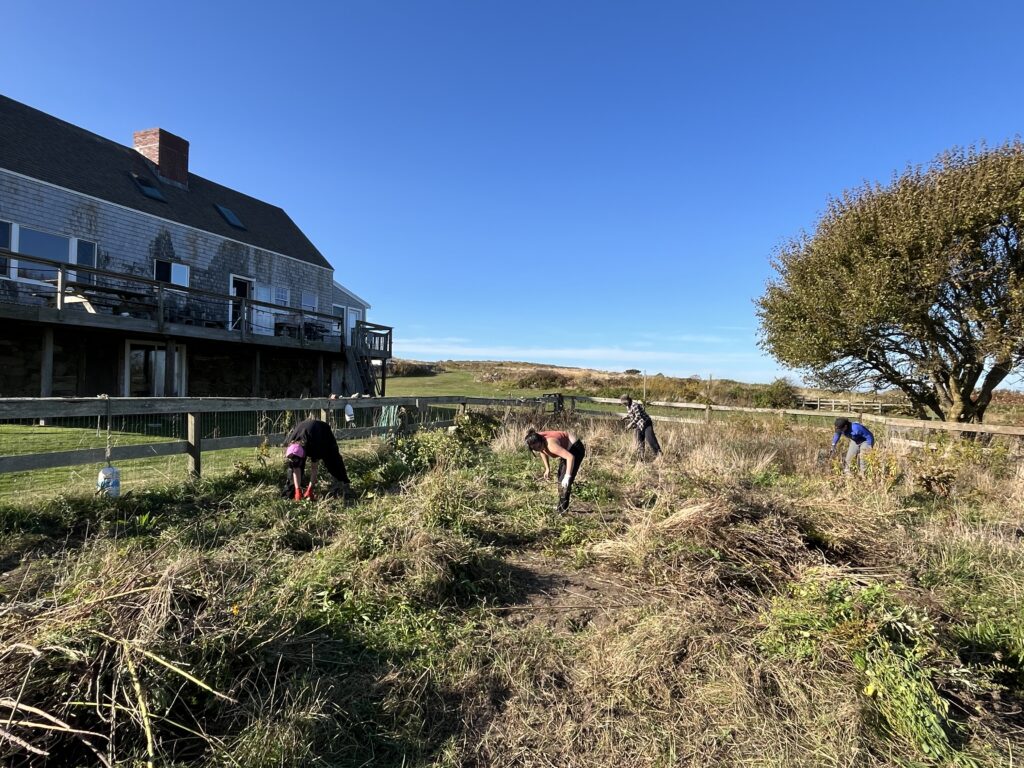
Coastal Cleanup
While on Penikese, we had the opportunity to participate in a coastal cleanup along the island’s isthmus. Under the management of the Massachusetts Division of Fisheries and Wildlife, Penikese Island remains an important nesting site for many species of seabirds; keeping the island clean is crucial in maintaining the integrity of these nesting sites while also removing trash that has the potential to be ingested by seabirds. Equipped with gloves and black garbage bags, we walked up and down the beach collecting various pieces of trash, frequently coming across ropes, plastic bottles, rusty old lobster traps, bottle caps, and aluminum cans.
While we walked, we talked freely into the wind about the items we were finding and things we deemed we could leave behind (for example, pieces of wood, which would degrade over time). We also reflected on our conversations from seminar and self-governance meetings. Towards the end of our clean-up, we came across the perplexing remains of a seal with two distinguishable flippers. Finding the seal flippers allowed us to connect our seminar discussions about Agassiz to something tangible, cementing our learning.
Kitchen Labor: Cooking, Cleaning & Dishes
One prominent aspect of our group’s labor on Penikese revolved around the kitchen– meal planning, cooking, and washing dishes. We cooked breakfast and dinner each day on the island, beginning preparation with time to troubleshoot the day’s recipes. In teams of 2-3, we flipped pancakes, chopped vegetables, seasoned curries, and kneaded dough. When the meal was ready to be served, we had the honor of ringing the dinner bell to call the rest of the group to eat. Although we were only on the island for a short time, meals became an important ritual that outlined the activities of each day. The group’s consensus was that showing up for each other, caring for each other in this tangible way was part of what made this experience so impactful.
